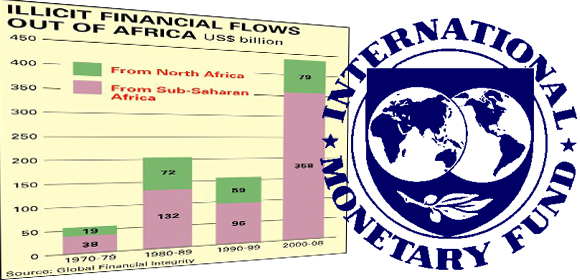- Washington “follows with interest” Morocco’s openness onto Africa (John Kerry)Posted 11 years ago
- The trial of South African Paralympic champion Oscar Pistorius opened in Pretoria on Monday.Posted 11 years ago
- USA welcomes efforts of King Mohammed VI in MaliPosted 11 years ago
- Egypt’s population reaches 94 millionPosted 11 years ago
- Mugabe celebrates his 90thPosted 11 years ago
- Moroccan Monarch to Build a Perinatal Clinic in BamakoPosted 11 years ago
- King Mohammed VI handed a donation of bovine semen for the benefit of Malian breeders.Posted 11 years ago
- Moroccan King’s strategic tour to Africa: Strengthening the will of pan African Solidarity and stimulating the south-south cooperation mechanisms over the continentPosted 12 years ago
- Senior al-Qaida leader killed in AlgeriaPosted 12 years ago
- Libya: The trial of former Prime Minister al-Baghdadi AliPosted 12 years ago
Africa: the Creation of the African Monetary Fund
 “Prior to the establishment of the African Monetary Fund (AMF), a number of concerns that are likely to be raised must be addressed. One important concern in that regard is whether the activities of the AMF would duplicate those of the International Monetary Fund (IMF) and create moral hazard”…
“Prior to the establishment of the African Monetary Fund (AMF), a number of concerns that are likely to be raised must be addressed. One important concern in that regard is whether the activities of the AMF would duplicate those of the International Monetary Fund (IMF) and create moral hazard”…
Ahead on the African Ministers of Economy and Finance meeting, scheduled on the 16th and 17th of December, a pre-meeting has been held, spread over three days of work and covering the elaboration of the first statute draft and the protocol establishing the African Monetary Fund (AMF), but also finding alternative sources of funding the African Union (AU), the Director of the Economic Affairs of the A.U Commission, René Kouassi N’Guettia said.
Among the 53 African countries, only a dozen of them were represented at the opening ceremony in the Cameroonian Capital, the FMA headquarters. Except the hosting country, South Africa, Egypt, Zambia, Ethiopia, Lesotho, Burundi, Djibouti and Chad that have sent their official delegations, the Other countries were represented only through their diplomatic officials in Yaoundé. This limited participation of the A.U member’s states is not a good signal to the African needs of addressing the economic and financial difficulties of the continent. With the African Central Bank (ACB) based in Abuja, Nigeria and the African Investment Bank (AIB) to be based in Tripoli, the African Monetary Fund is one of the three institutions created by the African Union Constitution in 2000. In fact, its implementation has been waiting in the pipeline since 1963, as long as the Arabo-African summit had been waiting to see its third summit held in Libya, since its first meeting in Cairo on 1970. Nevertheless, designed as “a path to an African common market”, the role of the new organisation is aiming to stimulate the economic development and the regional integration within the continent. The African Monetary Fund (AMF), entering in service on 2011, will strengthen the states capacity, enable them to better manage their economies and reduce their dependence vis-à-vis the external sources. But, we wonder then what do “External sources” mean? Does it mean the World Bank? Does it mean the International Monetary Fund? Does it mean the Club of Paris? Or does it mean all the other international banking institutions where a wide part of the African capital is placed? However and while still wondering, we wish smooth winds to all his good intentions, provided that they are African … and hope that credible economic policies will finally be built through a well managed restructuration of the public finances.
